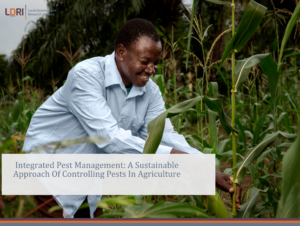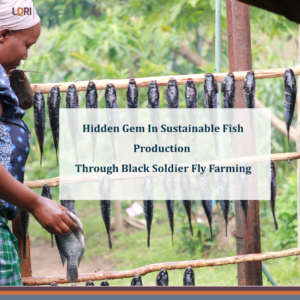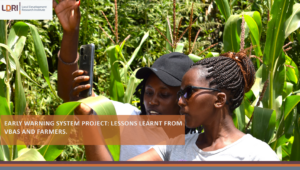
Africa’s agricultural sector is the continent’s best bet to achieve sustainable development and a return on investments. The sector is a source of livelihood for over 70% of the population and is the largest contributor to total gross domestic product (GDP). It is therefore imperative that a sector as crucial as this is driven by evidence-based policies, supportive institutions and corresponding human resources – conditions for sustainable development.
Data is central to evidence based policy and ensuring quality data exists helps in tracking progress, making informed decisions and enabling transparency and accountability. Generation and consolidation of precise and timely data provides a system that guides processes and aligns needs with necessary actions that address national priorities. Increasing focus on tracking current progress, resource allocation, identification of new sources of information and other interventions is the critical input needed in order to accelerate momentum towards reaching targets.
Everyone has a role to play. Governments have to create an enabling environment that facilitates the production and dissemination of quality data that is representative, standardized and complete. This will require government to strengthen their internal systems through capacity building, policy changes and realignment of programs that identify specific actions and potential risks to availability, use and dissemination of information. A big impediment towards better data is often institutional silos. For instance where several departments and agencies are unable or refuse to share information or knowledge with other individuals in the same organization or industry for fear of violation of the Official Secrets Act ( Cap. 187) or other restrictive laws across Africa that prohibit the access of data.
In order for data to play its rightful role in supporting policies, institutions and action towards sustainable development, senior officials in government will have to be more proactive in advocating and implementing processes that lead to better quality data. This could include ensuring that there is uniform reporting, coordination and collaboration with other (government) department and agencies in producing and managing data.
On the other hand, farmers, extension workers and civil societies need to be informed and included. This will create the demand for the data and consequently access to current agricultural information. Increasing data use is one way of ensuring that decision-making is based on updated information, the current needs for development and relevant policy.
The Inaugural Biennial Report on the Comprehensive Africa Agriculture Development Programme is an example of a report that provides an up close analysis on agricultural performance in Africa and enables countries to track progress. A programme launched by The New Partnership for Africa’s Development (NEPAD) of the African Union Commission in collaboration with agriculture ministries and statistics offices to eradicate hunger and poverty in African countries by improving on agriculture. By using data from agriculture to understand the problems that African nations face in dealing with food and nutrition deficits enables policy makers rethink the problem into tangible benefits for greater solutions. This ensures that nations commit to raising the annual agriculture productivity by 6% per annum and increasing public investment in agriculture to 10% of their National Budgets. It reports on countries using a scorecard that is based on 23 performance categories and 43 indicators. It was presented by the African Union Commission in January 2018 and found that there has been exponential growth in agriculture productivity in Africa but only 20 out of 47 nations, are reported to be on-track in achieving their commitments by 2025.
Building institutions that can produce accurate and unbiased data and improving government capacity before the upcoming data collection process by NEPAD and IFPRI officials later this year for the Second Biennial Review Report 2020, means that we will be on the right track in improving data availability, identification of gaps and improve monitoring and evaluation in the agricultural transformation process.





